Post-Surgical Recovery: How to Speed Up the Process Safely
Undergoing surgery, no matter the reason or type, marks the beginning of a journey toward recovery. It's a path filled with the hope of returning to everyday activities and the anticipation of feeling 'normal' again. If you're reading this, chances are you're either preparing for this journey yourself or supporting someone who is. The desire for a swift and safe recovery is universal. However, the process can sometimes feel slow and daunting. Fortunately, there are proven strategies and inspiring success stories that can illuminate your path to recovery, making the journey not just bearable but also more effective.
Understanding Post-Surgical Recovery
Post-surgical recovery is a delicate and crucial period that varies significantly depending on the type of surgery, the individual's overall health, and numerous other factors. Generally, the recovery process can be viewed through the lens of several phases:
- Immediate Post-Operative Phase: This initial phase occurs right after surgery, usually within the hospital or surgical center, focusing on pain management and preventing complications.
- Early Recovery Phase: During this time, the focus shifts to mild activity, such as walking, to promote circulation and prevent blood clots. It's also when patients typically transition back home.
- Active Recovery Phase: This phase involves more substantial rehabilitation exercises and activities designed to restore strength, flexibility, and function.
Understanding these phases helps patients set realistic expectations and work progressively towards their recovery goals.
Safe Strategies to Enhance Recovery
Accelerating recovery, while ensuring safety and effectiveness, involves a holistic approach that encompasses rest, nutrition, and the utilization of recovery aids. Here are several strategies to consider:
- Prioritize Rest: Rest is crucial for healing. Ensure you're getting adequate sleep and taking breaks throughout the day to conserve energy for recovery.
- Optimize Nutrition: A balanced diet rich in vitamins, minerals, and proteins supports tissue repair and strengthens the immune system. Incorporate a variety of fruits, vegetables, lean proteins, and whole grains into your meals.
- Stay Hydrated: Adequate hydration is essential for all bodily functions, including healing. Aim for at least 8-10 glasses of water a day, unless advised otherwise by your physician.
- Follow Physical Therapy Recommendations: Engage in prescribed physical therapy exercises to improve flexibility, strength, and reduce recovery time. Tailor activities to your recovery phase and capabilities.
- Use Recovery Aids: Tools like the Donjoy Iceman Clear3 can significantly aid in reducing pain and swelling. This device circulates cold water around the affected area, providing continuous cold therapy that's both effective and convenient.
Implementing these strategies can make a significant difference in your recovery speed and comfort level.
Success Stories
The effectiveness of a comprehensive recovery plan is best illustrated through success stories.
Case Study 1: Emily, a 30-year-old marathon runner, underwent ACL reconstruction surgery. Determined to return to running, she closely followed her surgeon's advice, prioritized her nutrition, and rested adequately. She used the Donjoy Iceman Clear3 to manage swelling and pain post-operatively, which she credits for her ability to start physical therapy sooner than expected. Within six months, Emily was back to light running and fully recovered by the nine-month mark.
Case Study 2: Mark, a 55-year-old with a sedentary lifestyle, faced a challenging recovery after back surgery. By adopting a more nutritious diet, staying hydrated, and following a gentle exercise routine, Mark improved his overall health, which in turn aided his recovery. The use of recovery aids like the Donjoy Iceman Clear3 helped manage his post-surgical pain, allowing him to engage in physical therapy more effectively. Mark's recovery was a testament to the impact of holistic health improvements on post-surgical outcomes.
Recovery is a personal journey, and these stories underscore the importance of a patient-centered approach, highlighting how dedication, proper nutrition, rest, and the right recovery aids can significantly enhance the recovery process.
As you embark on or continue your recovery journey, remember to approach it with patience, understanding, and the right tools at your disposal. Recovery is not a race, but rather a step-by-step process that requires time, care, and attention. By adopting safe and effective strategies, seeking support when needed, and celebrating small victories along the way, you'll not only recover but also potentially emerge stronger and more resilient. Remember, every recovery story is unique, and yours is unfolding one day at a time.





